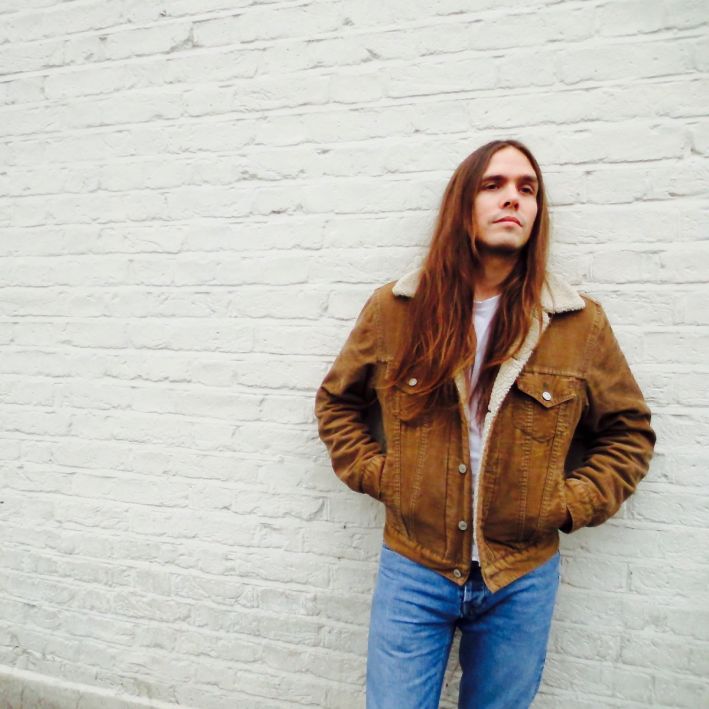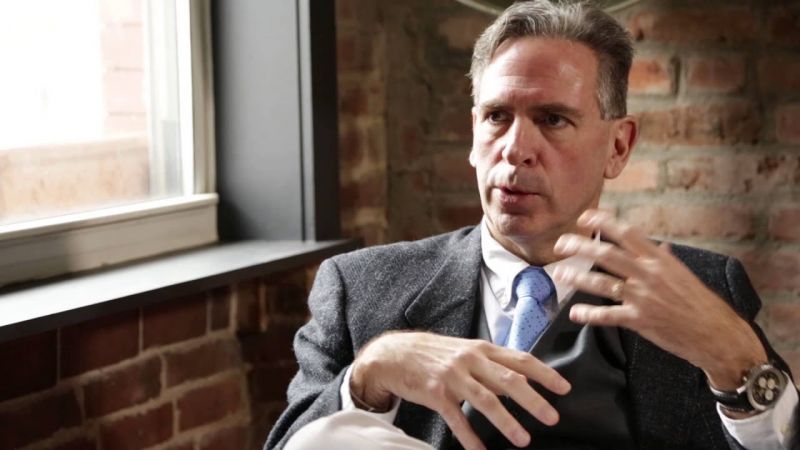Enemy Of The Good: Accepting OCD in a Pandemic World
I've spent decades analyzing my every move. Now the rest of the world has to as well.
Escrito por Jay Fynn

01 Jay has lived with intrusive thoughts since childhood. They've come in many forms — contamination, harm, sexual.
02 It wasn’t until his thirties that he finally received an OCD diagnosis and found help.
03 As the rest of the world adjusts to life on high alert with the Covid-19 pandemic, Jay has been evaluating his own anxiety journey and its impact on his life.
It’s a strange thing to spend thirty years rationalising your way out of irrational thoughts, and then wake up one day to find the whole world seems to have disappeared down the same dark tunnel from which you’ve been trying to escape for most of your life. As the rest of the world tries to come to terms with life lived on high alert, I’ve been trying to make sense of my own anxious existence.
Exactly when the harassing voice first appeared in my head I can’t remember, it feels so long ago now, but I was just a little kid. It seemed to set me absurd challenges, all the things that I later learned were well-worn cliches, this classic for example: if you don’t turn the light off and on again a certain number of times before leaving the room someone in your family will die.
Every action had the potential to bring about terrible consequences. The plane crash on the news, the missing person — was I to blame?

Dr. Phillipson Talks Science, Symptoms & Treatment of OCD
Where I got these odd ideas from I’m not sure. In a funny way, they don’t seem so far-fetched right now. The belief that your actions, however seemingly insignificant, might inadvertently trigger a chain of events that could lead to someone's death. Butterfly wings. Stay home and save lives. In the current context of Covid-19 it makes sense.
But the voice in my childhood mind was asking me to take responsibility for events I had nothing to do with, to try and control things beyond my control. Bad things that happened were somehow my fault. A heavy, dark blanket of death seemed to smother everything beneath it.
That same strange voice was also determined to hold on to the violent and sexual thoughts that I didn’t want to have and judged me harshly for these disturbing fixations. It felt as if I’d crossed a threshold, that I was on the other side of some dark void, a no-mans land separating me from everyone else.
This part of my anxiety, the magical thinking, the intrusive thoughts that I felt unable to control, appeared first. Other elements then followed as I reached adolescence. Dates, such as New Year or my birthday, started to hold huge significance. Counting. Washing. Ordering. Along with an overwhelming fear of contamination.
As a kid I spent weeks cleaning, usually in the lead up to a perceived important date. Disinfecting the inside of the drawers in a cupboard. Polishing and dusting. Wiping surfaces a certain amount of times.
Everything had to be done in a particular order. Everything symmetrical. Arranging and rearranging. And showering multiple times a day. I should’ve been hanging out with friends, or studying, not trying to create some kind of hyper-sterile environment, some perfect configuration to keep myself and others safe from harm. And to keep my mind free from disturbing thoughts.
That’s how it worked. A grisly news story, gleaned from television or the front cover of the tabloids, would implant itself in my head, often amplified if I thought somehow I was responsible because I hadn’t done something correctly, some action the troll voice had urged me to repeat but I’d resisted.
The consequences of my transgression — catastrophic. Someone died because of me. A child was murdered. The thought would be there in the morning when the alarm woke me. It would be there at night when I wanted to sleep. I’d feel such guilt for carrying these preoccupations in my mind, some sordid story on constant loop. I had to clean to make things right.
A date would appear on the horizon, an opportunity to start again.
In the weeks leading up to the important day of renewal I would clean constantly. Then on the magic day I’d wash my bedsheets, wash my clothes. After hours of cleaning I’d run a scalding hot bath, so hot that my skin glowed red afterwards. Midnight approached and I could shed my old, sinful self and start anew, free of mental or physically contamination. Everything had been purged. And then, as the clock struck twelve, the images I’d been trying to avoid would fill my mind. Unable to hold back these thoughts the moment of reset had been destroyed.
It wasn’t until I was in my thirties that I found help. During my first session of counselling the therapist made the evaluation that I “presented with a twenty-five year history of obsessive-compulsive disorder which over the years has taken a number of different formats.” Not that I needed telling, but at least I’d finally confessed my deepest, darkest secret to someone who was able to understand.
The therapist suggested cognitive behavioural therapy but I knew I couldn’t do it. They would make me touch a door handle or tie my shoelaces without allowing me to wash my hands afterwards and the thought was terrifying.
But I took the drugs that were on offer. I was prescribed Sertraline, a type of antidepressant known as a Selective Serotonin Reuptake Inhibitor (SSRI), 50mg a day increasing to 200mg. By the time I got to that magic number I was flying. I could sit on a crowded train and not be phased. My heart wasn’t pounding, my head wasn’t dizzy with anxiety.
Condiciones relacionadas
In the past I’d tried self-medicating with cannabis, but Sertraline was more effective at dulling the worst aspects of OCD for me. It’s vice-like grip on my brain seemed to ease. I wasn’t as worried about intrusive thoughts and had fewer as a result. The taunting voice didn’t set me as many absurd challenges and when it did I was more able to resist. It was easier to go out and socialise, easier to deal with everyday life. The drugs worked. They helped me traverse that no-mans land, that dark void. I’d crossed the rubicon back to the land of the living.
An article published by The Wall Street Journal on March 31st carried the ridiculous headline ‘We All Need OCD Now.’ No.
Suffering from a debilitating mental illness is not something to aspire to, and life lived in the shadow of anxiety is no life at all. That’s what I tell myself. I have to remain vigilant and resist the irrational voice in my head, I can’t afford to succumb to those demons.
OCD takes away opportunities and experiences. It reduces life down to a series of tedious repetitive thoughts and behaviours. It provides no useful function. It’s no small irony that after volunteering for a drug trial to test the efficacy of a potential vaccine for Covid-19 and passing the first stage checks on physical eligibility, I was rejected due to the OCD diagnosis that appeared on my health record.
As The Daily Mash cruelly observed: “Washing boxes of fish fingers used to be the kind of behaviour that Channel 5 enjoyed making lurid documentaries about. But now we’re all obsessive-compulsive clean freaks who think nothing of rinsing a packet of crumpets under the tap.”
Gallows humour. But my heart sinks when I hear about people washing their groceries. It’s just the sort of thing I would’ve done in the bad old days, when I was at my lowest and most irrational. Back when I was so concerned about touching the outer packaging of food I’d eat crisps with a fork.
But for me it wasn’t about the threat of a dangerous virus, it was about a fear of some unknown terror. A constant low-level sense of dread permeated everything.
This bad thing that might happen meant I had to find ways to reduce the chances of such a catastrophe, however seemingly absurd. That level of irrational fear is hard to maintain without it taking a significant mental toll. All the time worrying about what I’ve touched and what someone else has touched. It’s a surprise to me that it’s a surprise to people that other people touch things. At times I’ve thought about little else.
If, while travelling on public transport, I see someone press the bell with their hand inside their sleeve, or holding onto the handrail with a tissue, the little OCD gremlin inside me grins. He thinks he’s been vindicated. I tell him to get lost. I’ve spent too many years trying to avoid thinking about these things, trying to forget such preoccupations. I’m good at forgetting, but the world has suddenly become intent on reminding me of this neurosis. Now it’s much harder to forget. Just when I thought I’d put the worst of it behind me the hell that I once thought was confined to my own mind seems to have escaped out into the world at large.
Perhaps I thought that if I spoke about my OCD, if I said its name out loud, then I would conjure it into a more tangible existence. That it would become more real and more powerful. In fact the opposite is true.
Speaking about it, writing about it, has diminished its power. My advice to anyone who recognises themselves in any of this is not to feel afraid of seeking help. Don’t be scared to open up about what you’re going through. Or if a friend or loved one seems to be having a hard time, reach out, ask them if they’re okay. Talking helps.
I kept my struggles hidden for too long. There are pathways out of this dark tunnel, sometimes we just need a helping hand to guide us through to the other side.
Apoya nuestro trabajo
Nuestra misión es cambiar la manera en que el mundo percibe la salud mental.



















